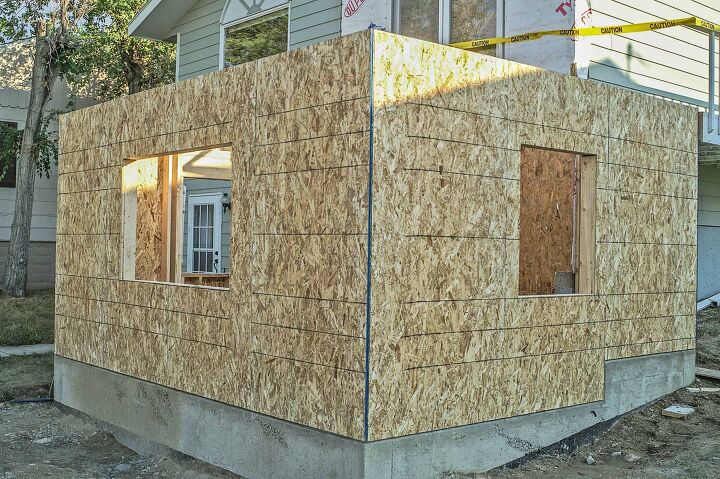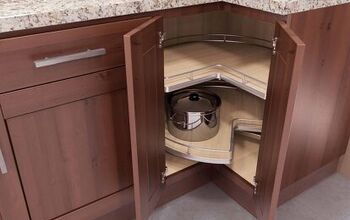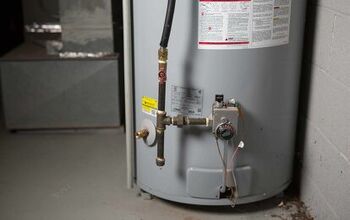Contractor Didn't Pull A Permit? (Here's What You Can Do)

Contractors remove much of the unnecessary stress that comes with renovations and projects around the house. Typically, they include permit fees in their contract and pull the permit on your behalf so you don’t have to worry about it. However, that doesn’t always happen, so what happens if your contractor didn’t pull permits?
You can receive a fine if your contractor didn’t pull permits before a project. A licensed contractor generally includes the permit fees in the contract before they begin a project. Homeowners can sue a contractor or apply for a retroactive permit if the contract stated they were responsible for the permit but they never pulled it.
It is possible to take a contractor to small claims court if you receive fines because they didn’t pull a permit. Always read the contract before you sign it so that you know who is responsible for the permit before they begin the project. Follow along as we explore what you can do when your contractor didn’t pull permits.
Do You Need a Permit Service?
Get free, zero-commitment quotes from pro contractors near you.

My Contractor Didn’t Pull Permits
It can threaten your entire project if you discover that your contractor didn’t pull permits. However, it doesn’t mean that you need to stop your project altogether just because you don’t have the permits. You may be subject to fines, but you can generally obtain a permit during or after you complete a project.
It is possible to obtain a permit whether you are a licensed contractor or simply a homeowner looking to work on a project. You must contact your county permit office and find out what their requirements are to obtain a permit. Contractors often include permit fees in their bills, and permits cost an average of $477.
Who is Responsible For Permits?
Your contractor is responsible for permits unless the contract says otherwise in most cases. Contractors typically apply for the permit on behalf of the homeowner before they begin a project. As a homeowner, you can suggest that the contractor applies for the permit if they don’t intend to.
Licensed contractors generally know that it is their responsibility to obtain the permit for the client. Contracts generally include permit fees and the National Association of the Remodeling Industry says that homeowners should trust that their contractor will handle it. However, a homeowner will pay the price if the contractor doesn’t pull the correct permit.
It is a violation of building codes to proceed with a project when you don’t have the permit. You will likely have to pay a fine if it turns out it was your responsibility. Contractors have the responsibility to make sure that you have a permit, but you may face the consequences for their mistake.
What do I Do if my Contractor Didn’t Pull Permits?
You can apply for a retroactive permit if your contractor didn’t obtain the proper permits. The easiest way to obtain a building permit is to contact your county permit office. It can be a tricky process, and the office may request that you provide bills, receipts, and pictures of the project.
They will inspect your home or job site to make sure that everything is up to current building code standards. The county permit office will likely recommend that you hire a different licensed contractor if you haven’t already. Licensed contractors are generally more experienced, have better certification, and are more transparent.
However, that isn’t always the case, and even licensed contractors can neglect permits. That is why it is important to make it clear who is responsible for the permits when you write up or approve a contract. Follow up with the contractor at any point before or during the project to make sure that they have the correct permits.
Contact Your HOA
Contact the board if you live in an HOA community and your contractor didn’t pull a permit. Generally, an HOA retains a lawyer year-round to handle problems with permits or litigious residents. Your HOA should help you contact their lawyer to find out the best way to proceed.
This help could include anything from dodging fines to taking the contractor to court. Otherwise, they may simply provide advice about how to pull a retroactive permit or hire a different contractor. The average HOA can easily recommend you a list of licensed and reputable contractors so that you can avoid the problem in the future.
Reach an Agreement
Sometimes the best course of action is to reach an agreement with your contractor. Put the poor communication in the past and work out a solution to get the correct permit. This is especially important if you don’t have other contractors at your disposal that you could hire to finish the job.
Communicate clearly with the end goal of getting a permit so that nobody can fine you. Either pause the project until they pull the permit or have them apply for a retroactive permit on your behalf. The outcome will vary based on whether or not they are licensed and how far along the project is.
You don’t need to threaten them with legal action, but you may need to make it clear that you know it’s an option. Whether a contractor is overcharging or being dishonest, you always have a way out. The average contractor cares about what their client thinks because it’s a word of mouth business, so they should do the right thing.
Can I Sue My Contractor For Not Getting Permits?
You can sue a contractor if they don’t get the proper permit, and it usually comes down to small claims court. However, you must make sure that the contract doesn’t have a clause that makes you responsible for the permits. In that case, you wouldn’t likely be able to get money in court for it.
It is particularly easy to sue an unlicensed contractor because it is easier to prove that there was a negligent lack of professionalism. You can only sue a contractor when they don’t get permits if the contract states that they were supposed to. Homeowners rightfully sue over this because it affects their ability to sell the house later on.
How Do I Get a Building Permit?
You can get a building permit if you contact your local county permit office. Contractors contact the office for you in most cases, but you are welcome to pull a permit without them. It takes three simple steps to obtain a building permit for simple home projects.
1. Contact County Permit Office
Contact the county permit office to find out if they require a permit for your particular project. A licensed contractor should do this for you, but you may want to do it yourself to make sure it gets done. The permit office will let you know what materials are appropriate for the job, and they will likely charge a fee when you apply.
2. Collect Information
Permit offices require key information before they approve and grant you a permit. This information generally includes information about the scale of the project and dimensions if it is for an extension. That is why it is ideal for the contractor to apply for the permit so that they can provide sketches, surveys, and measurements.
The permit office may require that you hire a surveyor or architect to provide data, measurements, and a design. Provide a site plan that lays out the scope of your project so that the permit office understands the full extent of it.
Step 3: Submit Your Documents
Wait until you receive all of the documents that you need from the surveyor, inspector, or architect. Sumit all of the information and provide them with an estimated start date for the project. Permit offices can approve a permit in a few days or even a few weeks.
Wait to start the project until the office approves the permit. Otherwise, you may strike ground a project that is against the building code, and the permit office will fine you. Follow up with the permit office if they take too long to get back to you, and find out if you need to provide more information.
Summing It Up
Your contractor should obtain the permit for you before they begin the project. However, you may need to obtain a retroactive permit if the contractor didn’t pull the necessary permits in advance. Otherwise, your county permit office can fine you for work that isn’t permitted.
Failure to obtain a permit for a project can also hinder your ability to sell your house. It is possible to sue a contractor if the contract stated that it was their responsibility to pull the permit before the project. However, you can only take them to small claims court but you will likely win if you can prove the permit was their responsibility.
Check-in with your contractor before or during a project to make sure they have the correct permits. Better yet, never sign a contract until you read it so that you know who is responsible for the permit to avoid fines.
Related Questions
How do I know my contractor is licensed and insured?
You can confirm that your contractor is licensed and insured if you check the state licensing board. Otherwise, you can request that your contractor provide proof of their license and insurance before you sign a contract. This will help remove much of the liability from you and means that your contractor is highly qualified.
Can you get a building permit without a contractor?
It is possible to get a building permit without a contractor if you provide the proper information. Some areas have a different process for permit application based on whether you’re a contractor or a homeowner. Provide information about the scale of the project and hire a surveyor or inspector to provide key information to the permit office.
Related Guides

Stacy Randall is a wife, mother, and freelance writer from NOLA that has always had a love for DIY projects, home organization, and making spaces beautiful. Together with her husband, she has been spending the last several years lovingly renovating her grandparent's former home, making it their own and learning a lot about life along the way.
More by Stacy Randall













![10 Best Electric Pressure Washers – [2022 Reviews & Guide]](https://cdn-fastly.upgradedhome.com/media/2023/07/31/9070600/10-best-electric-pressure-washers-2022-reviews-guide.jpg?size=350x220)













